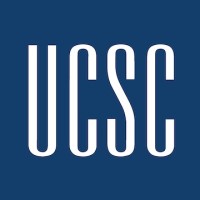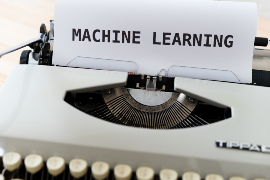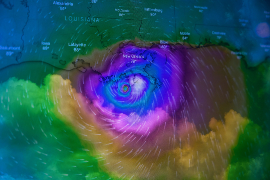Bachelor of Science in Applied Mathematics (Bachelors)
UC Santa Cruz
Santa Cruz, CA
Applied mathematics is a field of research specializing in the development and application of analytical and numerical tools and techniques toward the solution of complex quantitative problems in science and engineering. A Bachelor of Science (B.S.) in Applied Mathematics prepares graduates for careers in the industry (usually in research and development) or academia (either in teaching and/or in research at university or governmental laboratories or agencies). It can be a terminal degree, or prepare students for graduate school in applied mathematics or related fields.
The applied mathematics major at the University of California, Santa Cruz, provides students with a holistic training in mathematical modeling. The core of the degree program includes six courses that introduce modern analytical (and semi-analytical) techniques as well as general aspects of scientific computing. Students gain further depth or breadth by taking three (or more) electives among a large list of upper-division or graduate courses offered by applied mathematics faculty or in related subject areas. Finally, students learn to apply the techniques and tools learned through two capstone courses that focus on modeling “real- life” quantitative problems in science and engineering. In these courses, students also learn additional skills such as mathematical abstraction, critical thinking, and disciplinary communication.
The major has been designed to allow students to easily pursue an additional minor or major in an area of applications of mathematics (such as physics, astrophysics, Earth sciences, computer sciences, computer engineering, electrical engineering), and/or to pursue the 4+1 pathway into the Master of Science (M.S.) degree program in Scientific Computing and Applied Mathematics also offered by the Department of Applied Mathematics.
Kết quả học tập của chương trình
Recipients of a B.S. degree in applied mathematics at UC Santa Cruz are expected to have the following skills and experiences:
✔ To be able to take a real-life science or engineering problem, and create a mathematical model for it, under the supervision of a professor.
- To be competent with a number of analytical methods for the solution of linear algebra problems, as well as ordinary and partial differential equations.
✔ To be competent with constructing numerical algorithms for the solution of linear algebra problems and ordinary differential equations.
✔ To be competent in at least two scientific computing languages such as: Fortran, C, Python, R, Matlab, etc. and to be familiar with other computational elements such as Unix-type operating systems, the use of compilers, professional scientific computing libraries, efficient IO algorithms, data visualization tools, etc.
✔ To be able to analyze critically the results from the model obtained, and identify when the model is inappropriate.
✔ To be able to communicate clearly and coherently with professionals (orally and/or in writing), in order to: (1) understand what is needed of the mathematical model prior to the investigation; and (2) report on the results of the model after the investigation.













